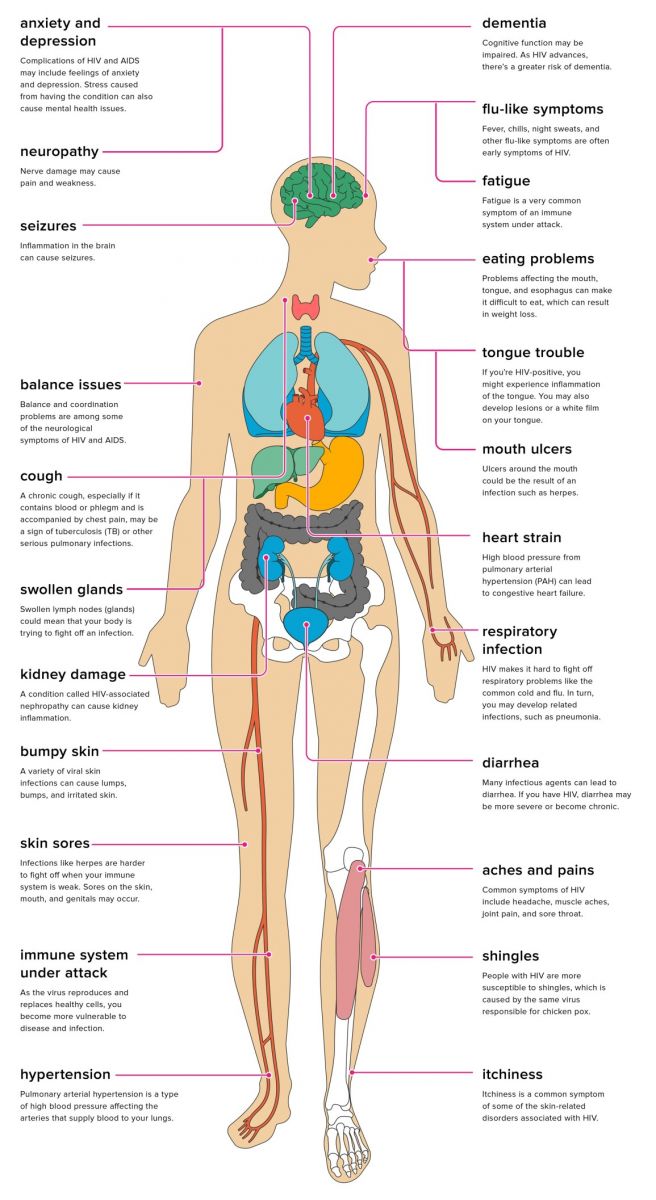Source: Thailand Medical News Sep 23, 2019 6 years, 4 months, 2 weeks, 2 days, 7 hours, 17 minutes ago
Longterm patients will ultimately face increased incidence of heart disease, COPD, Tuberculosis and bone fractures according to a new study. These are the areas that HIV patients need to take extra care off besides their antiretroviral regimens.
Academics from Anglia Ruskin University (ARU) in Cambridge and the Medical University of Vienna conducted the first ever large-scale review into the health outcomes of people living with HIV has found that this group has an increased risk of contracting specific diseases and illnesses, some of which are more commonly associated with ageing.
The macro review combined data from 20 separate observational studies and examined 55 different illnesses. The study found that people living with HIV have a significantly elevated risk of Chronic Obstructive Pulmonary Disease (COPD) and coughs, heart disease, pregnancy mortality and sepsis, anemia, and bone fractures.
HIV Effects On Individuals
Although the number of people contracting HIV is declining, approximately 2.1 million people are infected every year and HIV remains one of the world's major health issues.
In recent years, people living with HIV have benefited from improved access to antiretroviral treatment. However, increased life expectancy and a lower immunity has meant higher levels of comorbidity, with people living with HIV also more likely to suffer from other illnesses.
The greater prevalence of age-associated diseases may be explained by the persistent immunodeficiency and inflammation connected with HIV. There are also adverse effects associated with antiretroviral treatment.
Previous studies have also suggested that people living with HIV in developed countries, as a population, often exhibit greater risk factors associated with non-AIDS related illnesses, such as smoking, drug use and alcohol use.
"There has been a major shift in how we view HIV. It is no longer a death sentence but rather a manageable chronic illness. By pooling data from different studies, we've been able to show for the first time that even with the rise in life expectancy amongst people living with HIV, this population now seems to be disproportionately affected by chronic illnesses often attributable to lifestyle issues such as smoking, drug and alcohol use, or more commonly associated with an older population. We're unable to say for certain which are caused or exacerbated by HIV and its treatment, and which are related to lifestyle. However, the elevated risk levels highlighted in our study should hopefully lead to further research to improve both the prevention and early detection of these comorbidities in people living with HIV. Public health bodies worldwide should reflect on these findings." commented Senior author Dr Lee Smith from Anglia Ruskin University (ARU) in a phone
interview with Thailand Medical News.
Many long-term HIV patients are advised to pay careful attention to these areas especially their heart and lungs. Annual checkups with a cardiologists and also a pulmonologists is a must along with other preventive measures including those that involve measures against contracting Tuberculosis and other respiratory illnesses.
Reference:
font-size:11px">Igor Grabovac, Nicola Veronese, Sinisa Stefanac, Sandra Haider, Sarah E Jackson, Ai Koyanagi, Michael Meilinger, Brendon Stubbs, Joseph Firth, Pinar Soysal, Francesco Di Gennaro, Jacopo Demurtas, Daragh T McDermott, Adam D Abbs, Lin Yang, Lee Smith. Human Immunodeficiency Virus Infection and Diverse Physical Health Outcomes: An Umbrella Review of Meta-analyses of Observational Studies. Clinical Infectious Diseases, 2019; DOI: 10.1093/cid/ciz539 